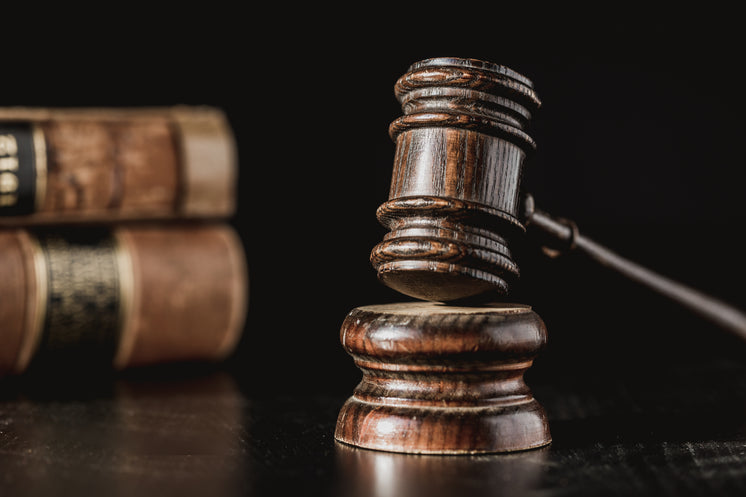Law courts in the Republic of Ireland are a crucial part of the countr…
페이지 정보
작성자 Willian 작성일 25-07-17 23:46 조회 83 댓글 0본문
In areas like family law, there are differences in how child custody, adoption, and divorce proceedings are handled compared to England or Scotland. The Children (Northern Ireland) Order 1995 is one such piece of legislation that is specific to Northern Ireland and guides child welfare decisions.
 In addition to online filing, the UK courts have also introduced the possibility of remote hearings for certain types of cases. This shift, accelerated by the COVID-19 pandemic, allowed courts to continue functioning despite lockdown restrictions. Remote hearings are now being used for minor criminal cases, allowing individuals to participate in legal proceedings from the comfort of their homes. While this has improved access for some, it has raised concerns about the potential for inequality, particularly for individuals who may not have the necessary technology or the ability to navigate online systems.
In addition to online filing, the UK courts have also introduced the possibility of remote hearings for certain types of cases. This shift, accelerated by the COVID-19 pandemic, allowed courts to continue functioning despite lockdown restrictions. Remote hearings are now being used for minor criminal cases, allowing individuals to participate in legal proceedings from the comfort of their homes. While this has improved access for some, it has raised concerns about the potential for inequality, particularly for individuals who may not have the necessary technology or the ability to navigate online systems.
 Community confidence in the legal system has steadily increased over recent decades, thanks in part to judicial transparency, media access to courtrooms, and outreach programs that educate the public about the role of courts in a democratic society.
Community confidence in the legal system has steadily increased over recent decades, thanks in part to judicial transparency, media access to courtrooms, and outreach programs that educate the public about the role of courts in a democratic society.
Ireland’s legal system also interacts with the European Union legal framework. EU law is directly applicable in Ireland, and Irish courts are obligated to interpret domestic law in line with EU treaties and regulations. The Court of Justice of the European Union (CJEU) in Luxembourg acts as the final arbiter in matters of EU law.
The role of technology in the UK court system is also evolving. The adoption of new technologies, such as artificial intelligence (AI) and machine learning, is beginning to play a role in improving the efficiency of court proceedings. For example, AI may be used to assist in legal research or to help predict the outcome of certain types of cases based on past decisions. While these technologies have the potential to improve efficiency and reduce human error, they also raise questions about privacy, fairness, and the potential for bias in the legal system.
The historical and political landscape has had a profound impact on its legal system. Special courts such as the Diplock Courts were once used to try terrorism-related offences without juries, although these have largely been phased out in favour of normalised legal processes.
Scottish court proceedings are generally conducted in English, although Gaelic may be used in certain circumstances. Court procedures are governed by rules and protocols developed specifically for Scotland, such as the Criminal Procedure (Scotland) Act 1995 and the Rules of the Court of Session.
From the High Court of Justiciary to the Justice of the Peace Courts, Scotland’s legal system reflects centuries of tradition alongside ongoing reform. As legal questions grow increasingly complex in areas like technology, constitutional law, and human rights, the Scottish courts remain at the forefront of delivering fair, efficient, and independent justice for all.
Magistrates’ Courts in Wales deal with less serious crimes, preliminary hearings for more serious cases, and some family and licensing matters. These courts are usually presided over by lay magistrates or district judges. They form the first point of contact for most criminal cases.
The ability to seek justice in Ireland is supported by a legal aid system, which provides assistance to those who cannot afford legal representation. The Legal Aid Board oversees civil legal aid, while criminal legal aid is administered through the Department of Justice.
Justice of the Peace Courts are managed by lay magistrates—non-legally trained volunteers—who deal with summary offences, such as petty theft. They can impose fines and short custodial sentences, but their powers are limited.
The Circuit Court handles more serious criminal offences (known as indictable offences), a wide range of civil matters, and also hears appeals from the District Court. In case you loved this post and you would want to receive much more information with regards to referrals for law firms assure visit our internet site. The country is divided into several circuits, and judges travel on circuit to hear cases. It’s an important tier for both criminal and civil law, especially in family law, probate, and contract disputes.
The Special Criminal Court is a unique institution in Irish law. It allows certain cases to be tried by judges without a jury, particularly where jury intimidation is a concern. While it has been praised for tackling gangland crime, it has also been criticised by human rights groups who argue that it circumvents the right to a jury trial.
The Court of Appeal, established in 2014, sits between the High Court and the Supreme Court. It was created to ease the backlog of appeals and improve the efficiency of the legal system. This court hears appeals in both civil and criminal matters from the High Court and ensures consistency in legal decisions across Ireland.
The Welsh Language Act 1993 and the Government of Wales Act 2006 establish that Welsh and English have equal status in court proceedings in Wales. This means individuals have the right to use the Welsh language in legal proceedings, and courts must make translation and interpretation services available. Many judges and legal professionals in Wales are bilingual.
 In addition to online filing, the UK courts have also introduced the possibility of remote hearings for certain types of cases. This shift, accelerated by the COVID-19 pandemic, allowed courts to continue functioning despite lockdown restrictions. Remote hearings are now being used for minor criminal cases, allowing individuals to participate in legal proceedings from the comfort of their homes. While this has improved access for some, it has raised concerns about the potential for inequality, particularly for individuals who may not have the necessary technology or the ability to navigate online systems.
In addition to online filing, the UK courts have also introduced the possibility of remote hearings for certain types of cases. This shift, accelerated by the COVID-19 pandemic, allowed courts to continue functioning despite lockdown restrictions. Remote hearings are now being used for minor criminal cases, allowing individuals to participate in legal proceedings from the comfort of their homes. While this has improved access for some, it has raised concerns about the potential for inequality, particularly for individuals who may not have the necessary technology or the ability to navigate online systems. Community confidence in the legal system has steadily increased over recent decades, thanks in part to judicial transparency, media access to courtrooms, and outreach programs that educate the public about the role of courts in a democratic society.
Community confidence in the legal system has steadily increased over recent decades, thanks in part to judicial transparency, media access to courtrooms, and outreach programs that educate the public about the role of courts in a democratic society.Ireland’s legal system also interacts with the European Union legal framework. EU law is directly applicable in Ireland, and Irish courts are obligated to interpret domestic law in line with EU treaties and regulations. The Court of Justice of the European Union (CJEU) in Luxembourg acts as the final arbiter in matters of EU law.
The role of technology in the UK court system is also evolving. The adoption of new technologies, such as artificial intelligence (AI) and machine learning, is beginning to play a role in improving the efficiency of court proceedings. For example, AI may be used to assist in legal research or to help predict the outcome of certain types of cases based on past decisions. While these technologies have the potential to improve efficiency and reduce human error, they also raise questions about privacy, fairness, and the potential for bias in the legal system.
The historical and political landscape has had a profound impact on its legal system. Special courts such as the Diplock Courts were once used to try terrorism-related offences without juries, although these have largely been phased out in favour of normalised legal processes.
Scottish court proceedings are generally conducted in English, although Gaelic may be used in certain circumstances. Court procedures are governed by rules and protocols developed specifically for Scotland, such as the Criminal Procedure (Scotland) Act 1995 and the Rules of the Court of Session.
From the High Court of Justiciary to the Justice of the Peace Courts, Scotland’s legal system reflects centuries of tradition alongside ongoing reform. As legal questions grow increasingly complex in areas like technology, constitutional law, and human rights, the Scottish courts remain at the forefront of delivering fair, efficient, and independent justice for all.
Magistrates’ Courts in Wales deal with less serious crimes, preliminary hearings for more serious cases, and some family and licensing matters. These courts are usually presided over by lay magistrates or district judges. They form the first point of contact for most criminal cases.
The ability to seek justice in Ireland is supported by a legal aid system, which provides assistance to those who cannot afford legal representation. The Legal Aid Board oversees civil legal aid, while criminal legal aid is administered through the Department of Justice.
Justice of the Peace Courts are managed by lay magistrates—non-legally trained volunteers—who deal with summary offences, such as petty theft. They can impose fines and short custodial sentences, but their powers are limited.
The Circuit Court handles more serious criminal offences (known as indictable offences), a wide range of civil matters, and also hears appeals from the District Court. In case you loved this post and you would want to receive much more information with regards to referrals for law firms assure visit our internet site. The country is divided into several circuits, and judges travel on circuit to hear cases. It’s an important tier for both criminal and civil law, especially in family law, probate, and contract disputes.
The Special Criminal Court is a unique institution in Irish law. It allows certain cases to be tried by judges without a jury, particularly where jury intimidation is a concern. While it has been praised for tackling gangland crime, it has also been criticised by human rights groups who argue that it circumvents the right to a jury trial.
The Court of Appeal, established in 2014, sits between the High Court and the Supreme Court. It was created to ease the backlog of appeals and improve the efficiency of the legal system. This court hears appeals in both civil and criminal matters from the High Court and ensures consistency in legal decisions across Ireland.
The Welsh Language Act 1993 and the Government of Wales Act 2006 establish that Welsh and English have equal status in court proceedings in Wales. This means individuals have the right to use the Welsh language in legal proceedings, and courts must make translation and interpretation services available. Many judges and legal professionals in Wales are bilingual.
- 이전글 Ensuring Safety on Korean Gambling Sites with Sureman Scam Verification
- 다음글 부달서면노래방부산달리기【budal14.com】부산유흥
댓글목록 0
등록된 댓글이 없습니다.



